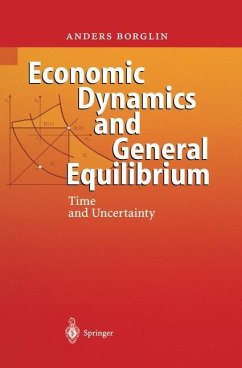
Economic Theory of Fuzzy Equilibria
An Axiomatic Analysis
Versandkostenfrei!
Versandfertig in 6-10 Tagen
38,99 €
inkl. MwSt.

PAYBACK Punkte
19 °P sammeln!
Fuzzy set theory, which started not much more than 20 years ago as a generalization of classical set theory, has in the meantime evolved into an area which scientifically, as well as from the point of view of applications, is recognized as a very valuable contribution to the existing knowledge. This book provides a remarkable contribution to Fuzzy Economics and presents the state of the art in fuzzy theory of value, namely the aggregated model of microeconomics with fuzzy behaviours. It presents an analysis of classical problems with new tools which lead to interesting results.














